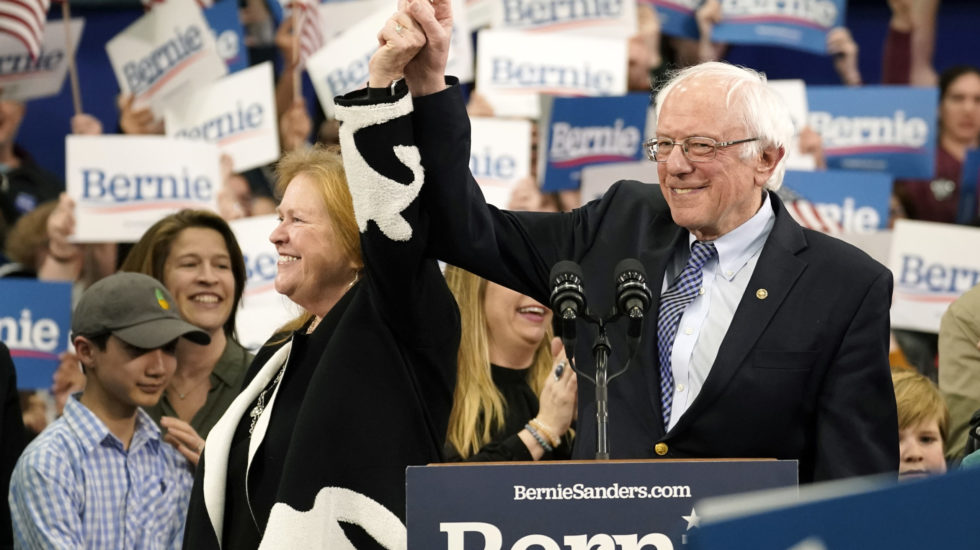New Hampshire was Bernie’s to win. And he did. But it was close.
The Granite State held its first-in-the-nation primary on Tuesday, and as results came in from Democratic polling places around the state, Sen. Bernie Sanders, from neighboring Vermont, led all the way, the Associated Press declaring him the winner shortly before midnight EST.
But former South Bend IN mayor Pete Buttigieg claimed a strong second place, and Sen. Amy Klobuchar (MN) finished a solid third. Sen. Elizabeth Warren (MA) and former vice president Joe Biden trailed.
The order of finish could be important: “The eventual Democratic nominee for president has taken first or second place in the New Hampshire primary in every race since 1968,” notes CNN.
With 90% of New Hampshire precincts reporting, Sanders had 26% of the votes; Buttigieg, 24.4%; Klobuchar, 19.7%; Warren, 9.3% and Biden, 8.4%. Sanders and Buttigieg each claimed 9 delegates to the national convention; Klobuchar, 6. Warren and Biden, none.
Warren told supporters not to be discouraged, saying she’s in it for the “long haul.”
Other candidates were well back. Some of them knew — and said — that they needed a good showing Tuesday if they hoped to build any momentum toward the nomination.
But state party officials may have been even more anxious, burdened as they were with the sense of having to make up, at least in part, for the chaos of last week’s Iowa caucuses. To their relief, things went smoothly: barely two hours after the polls began closing, 50% of the precincts had reported.
Biden never expected to do well in New Hampshire; he didn’t hang around for the results or even his own post-primary campaign rally, flying straight to South Carolina. He hopes to do much better in that state’s Feb. 29 primary, in part because of its racial diversity compared with largely white New Hampshire and Iowa. Should he fail there, his campaign could be over.
For two long-shot candidates — entrepreneur Andrew Yang and Colorado Sen. Michael Bennet — Tuesday was the end. Yang told the Washington Post that as “a numbers guy,” he recognized he had no chance of picking up any delegates to the national convention, so that was that. Bennet had said on Monday he “bet it all” on a good finish in New Hampshire — but he wound up with a losing hand.
The first handful of votes were cast early Tuesday in the traditional spot: tiny Dixville Notch, just 20 miles south of the Canadian border. The first three votes recorded were write-ins for Mike Bloomberg, the billionaire former mayor of New York City, who didn’t even campaign in New Hampshire, reports The Hill.
As ever, money is a major factor in any successful campaign. But there’s a huge difference between the truly wealthy candidates and those dependent on supporters’ donations.
Bloomberg, for instance, has no need of fundraising; he’s footing the entire bill for his unorthodox campaign.
But Sanders appears to be doing very well with his small-donations approach.
“Aides to Mr. Sanders said on Tuesday that he had received 600,000 contributions in the first nine days of February, and topped seven million contributions over all in his 2020 campaign as of Sunday,” reports the New York Times, adding that with an average donation of $18.72, he’s pulling in almost $1.25 million a day.
Next up for the Democrats: the Nevada caucuses on Saturday, Feb. 22, and one week later, the South Carolina primary.
After that comes Super Tuesday, Mar. 3, with more than 1,200 national delegates at stake in 14 states.
